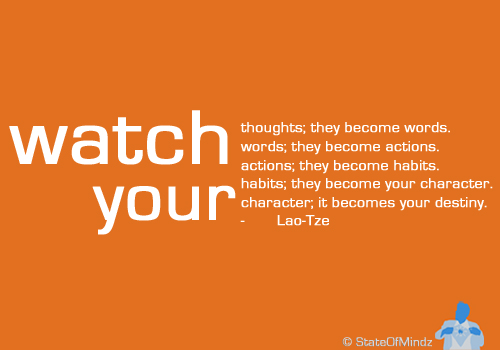‘Why are they better than me?’
Throughout my life, this has been a troubling thought in my head. No matter the task, I’ve always perceived that others were better than me. My insecurity about my capabilities and comparisons to others began when I was a young child and carried on into adulthood. Like most people, I still have my bouts of uncertainty, but I now understand what drives this and how to manage it.
For me, one of the most compelling experiences was when I was in 8th grade and had to give my first formal speech in front of my English class. The teacher gave us over a week to prepare, guiding us through creating outlines and providing feedback. When it came time to actually create the speech, I wrote it out on my lined loose-leaf paper (that was how we rolled back in the early 80s before the era of Google docs) and I would write and rewrite, occasionally scrapping it all, crumbling the paper and throwing it away to start over again.
As I neared the completion of my speech, my attention started to transition to my true anxiety—getting up and talking in front of my classmates and teacher. I was going to be judged. Of course, what my teenage, lizard brain could not understand is that no one in that room would judge me as harshly as I would.
Speech day! ‘Who was going to go first?’ I wondered. I wasn’t the type of kid who volunteered to go first—my hope was that I could summon the power of invisibility so the teacher would call on me last. (Naturally, I didn’t think about the pressure of being last either). One by one my classmates got up and delivered their speeches, each met with light applause from the class and a compliment from the teacher. I was confident that I would not have the same experience. Instead, I envisioned myself falling flat on my face.
When my name was called, I prepared myself to be shunned. No applause, no kind compliments from the teacher. Just epic failure. I walked to the front of the class, tightly gripping my trusted 3×5 index cards in my already-clammy hands. I took a deep breath and started talking. I don’t remember what I said at all.
When I was done, it seemed like minutes passed before I could focus on what was happening. I, like my classmates who went before me, received the same support from the other students and a nice compliment from my teacher. Well, that was unexpected. And I immediately wondered why I got myself so worked up, convinced that I was so much worse than everyone else.
And yet, my story is not unique. Many of us have had the same experience. And there is a very simple reason: Our brains are conditioned to do so.
One of the primary forces in our brains—the Reptilian brain or the primal center of the brain—houses all of our primitive instincts of fight or flight. Our twin amygdalae is housed deep inside the brain’s temporal lobe and controls our emotions. And when confronted with an anxiety-producing situation (like, perhaps, giving a speech in 8th grade), it kicks into action.
A study conducted last summer at Stanford University with MRI scans showed that children exhibiting higher levels of stress and anxiety had an amygdala “fear center” of significantly larger volume in their brains when compared to their peers, all of which showed patterns of stronger connectivity to the rest of the brain than normal.
Now that we know the root cause of our anxiety, we have to wonder if there is a way to combat this. The short answer? For myself, at least, is yes.
As a young adult, I began to realize that one way I could combat my anxiety and reduce my instinct of fight or flight was to model what I perceived as “good.” When we watch other people giving a presentation, we generally see the positives first. Because we are instinctively rooting for a positive outcome, we are consciously looking for the traits and behaviors of the speaker that appeal to us. This becomes the foundation of our own personal models of what to do well. We all have examples in our head of how we want to be perceived when we speak. Whether we realize it or not, we have identified attributes that resonate for us and we try to utilize them in our presentations.
Even though all of this is organically happening, we still beat ourselves up. Unless we have an over-inflated sense of self, many of us have to combat the impulse to unfairly and unkindly critique ourselves. While we generally use positive words to describe others before focusing on the less desirable elements, we are not so generous with ourselves. Possibly because we are so glad to be sitting in the audience and not at the front of the room, we can be more generous with our accolades. But more likely it is because we do not have the ability to see ourselves as objectively as we can for others. Often, we focus on the negative that is so glaringly obvious to us and typically not at all apparent to others.
Ultimately we can look at the science behind how we are hard-wired but so much of this comes down to a lack of self-compassion. Consider this:

How you perceive yourself and the words you choose to describe yourself will directly affect your behaviors and actions—and therefore become habits. Don’t underestimate this process. It can lead you to success or drive you to failure, depending on how you choose to perceive yourself. I still have my battles with my 8th grade self, threatening to show up and convince me that I am not good enough. I have much more control over those anxieties and I know that I’m not alone. In fact, I coach people every day that share the exact same feelings.
So, the next time you need to “check yourself,” ask a few people that you trust to give you honest feedback about how you did. If they give you positive feedback, don’t just write it off as them being nice. Accept their praise and internalize it. Remember, if your primal instincts are encouraging you could talk yourself out of it.
Here is a final thought: Don’t underestimate the importance of self-compassion.
Remember that this is different from self-esteem. Self-esteem is how you assess how good of a person you are. Self-compassion is a judgment-free space where we take care of ourselves. Just think about how you would treat someone else and apply those same behaviors to yourself. So before you start breaking yourself down, imagine yourself offering feedback in the same way to another person.
Even more, think about all the positive messages you convey to others and try offering those to yourself. When you become more compassionate with yourself and try to see yourself through the eyes of others (the same way you see others), you will begin telegraphing that positive message to your audience. And, hopefully, you’ll convince that primitive brain that you are safe and secure and there’s no need to run or hide.

